SERs : The Normalisation of Demolition & Displacement
The basis of this thesis stems from the concern of witnessing an increasing number of Singapore’s Housing and Development Board (HDB) neighbourhoods, particularly older and thus potentially more historically rich flats, evolving at a fast rate and losing both its tangible and intangible heritage to gentrification. In our public housing scene, gentrification has become too normalised and over-celebrated under the Selective En-Bloc Redevelopment Scheme (SERS) where demolition and rebuilding anew is portrayed to be an economically viable architectural solution to house our increasing population, maximise our scarce land as well incorporate new features to meet the needs of the future population. However, this constant act of displacement as well as demolition are largely detrimental to the economy, the environment and most importantly the community. It shakes the very foundation of home ownership and treats our citizens like objects that could be easily transferred to another home with little regard for the bonds they have created overtime, the memories and the place identity that has been cultivated. In addition, it may not necessarily be the most economically and environmentally sustainable method due to the extremely high demolition costs as well as construction costs and the detrimental environmental impacts.
De-EnBlogue
The thesis thus aims to question whether HDB’s method of demolition and building anew is the best way forward. In the case of Tanglin Halt, a neighbourhood that is at highest risk of total gentrification in Singapore due to SERs, total demolition of site and building anew is not necessary in order to achieve the projected density by URA. Through the use of adaptive reuse in terms of top, side and frontal additions, the projected density can still be achieved. In this light, De-EnBlogue, serves to provide a catalogue of different adaptive reuse strategies that can be applied to the site, and potentially to other at-risk sites in Singapore, as an alternative architectural solution to house the increasing density in Singapore as well as preserve the livelihood of existing communities. In order to determine which typology from this catalogue is the most holistic or workable for the site, these new typologies are then assessed based on the set of criterias seen below :
- Increase in the diversity of unit types
- Authenticity of the building (architectural integrity)
- Increase in social spaces
- Increase in density
- Improvement in environmental aspects (food production, energy-consumption & well-being)
- Improvement in economic expenditure
The Future of Conservation in our Public Housing Scene
This thesis has proved how conservation has never played a more pertinent role in today’s public housing scene and that conservation is a powerful tool that can strengthen communities as well as meet the needs of the future. Conservation in our public housing scene should definitely be raised as a viable tool to strengthen communities as well as develop and rejuvenate these areas in a more sensitive, human way, where the interests of the community is at the heart of the design strategy.
Moving forward, De-EnBlogue hopes that the architectural concepts or/and solutions that have been proposed can be applied to other public housing areas in Singapore at risk of gentrification as well, but of course with heavy discernment and consideration of the various site contexts.
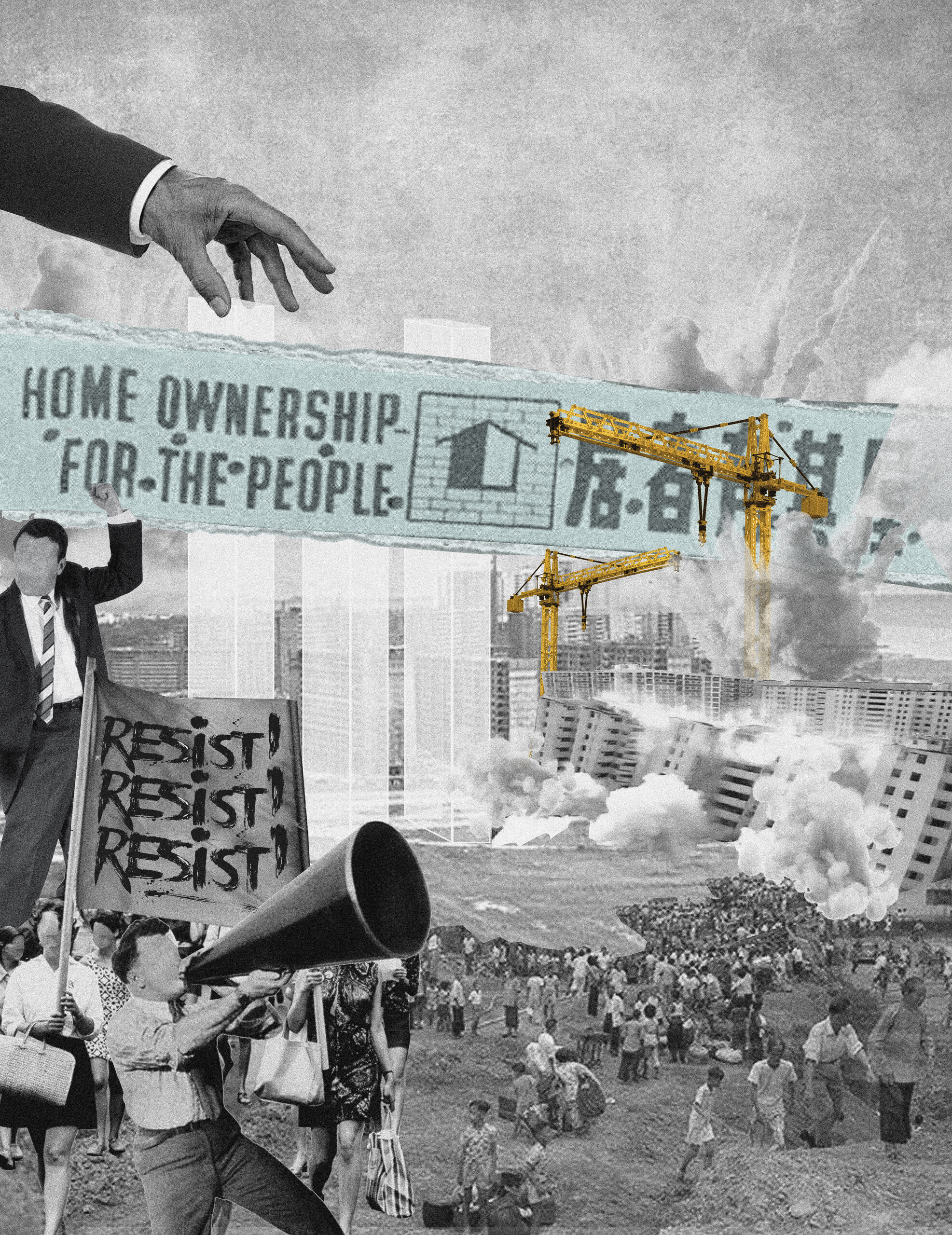
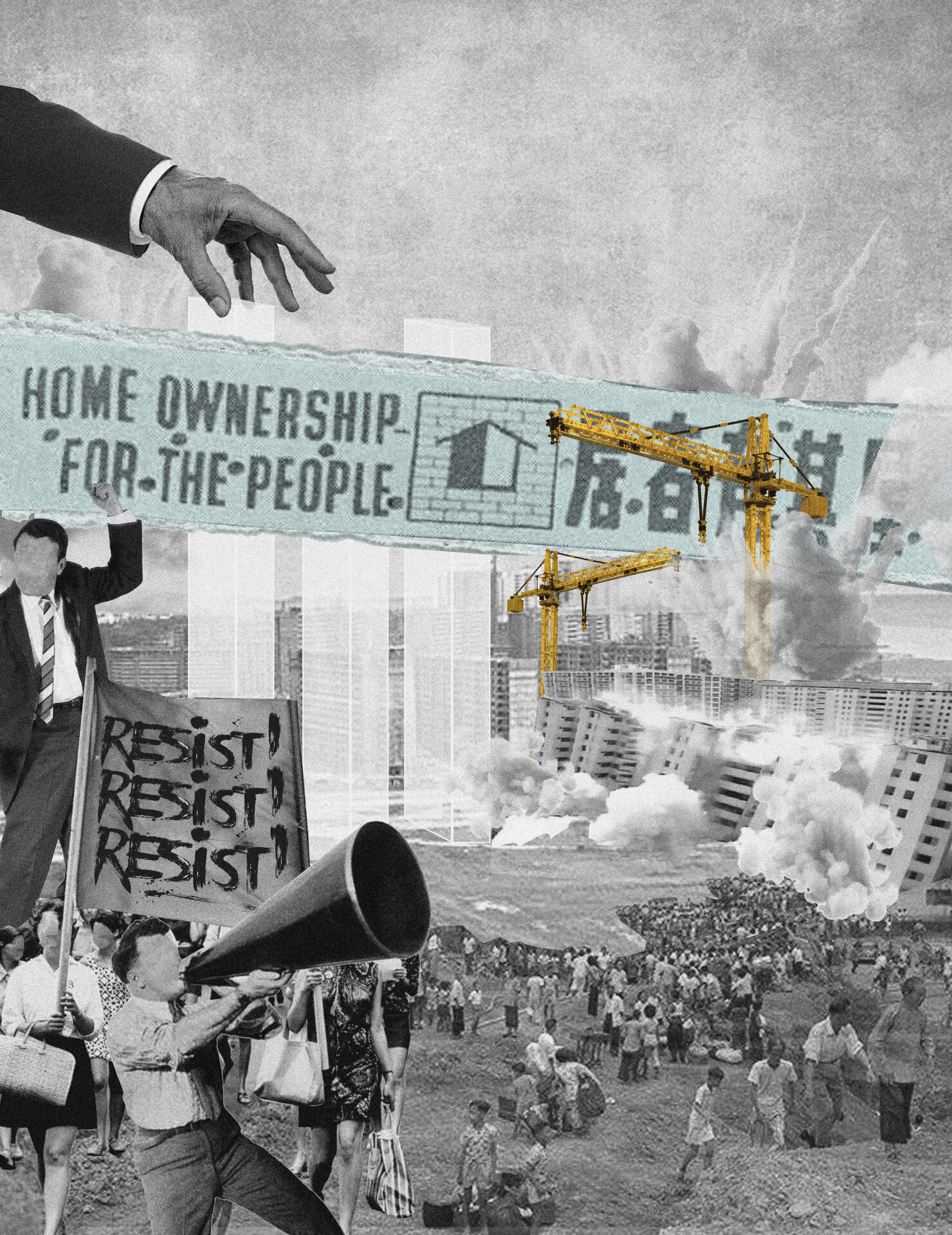




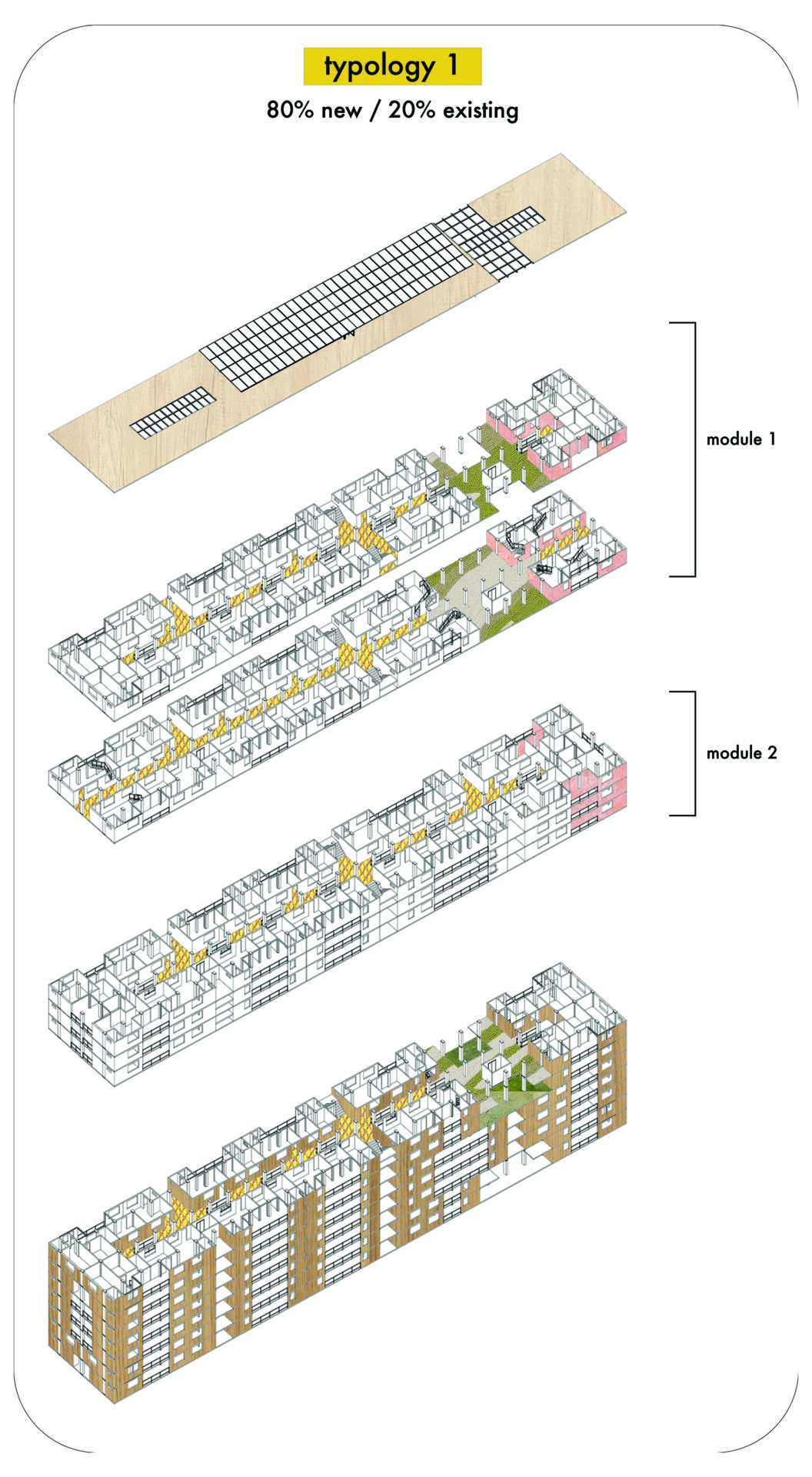
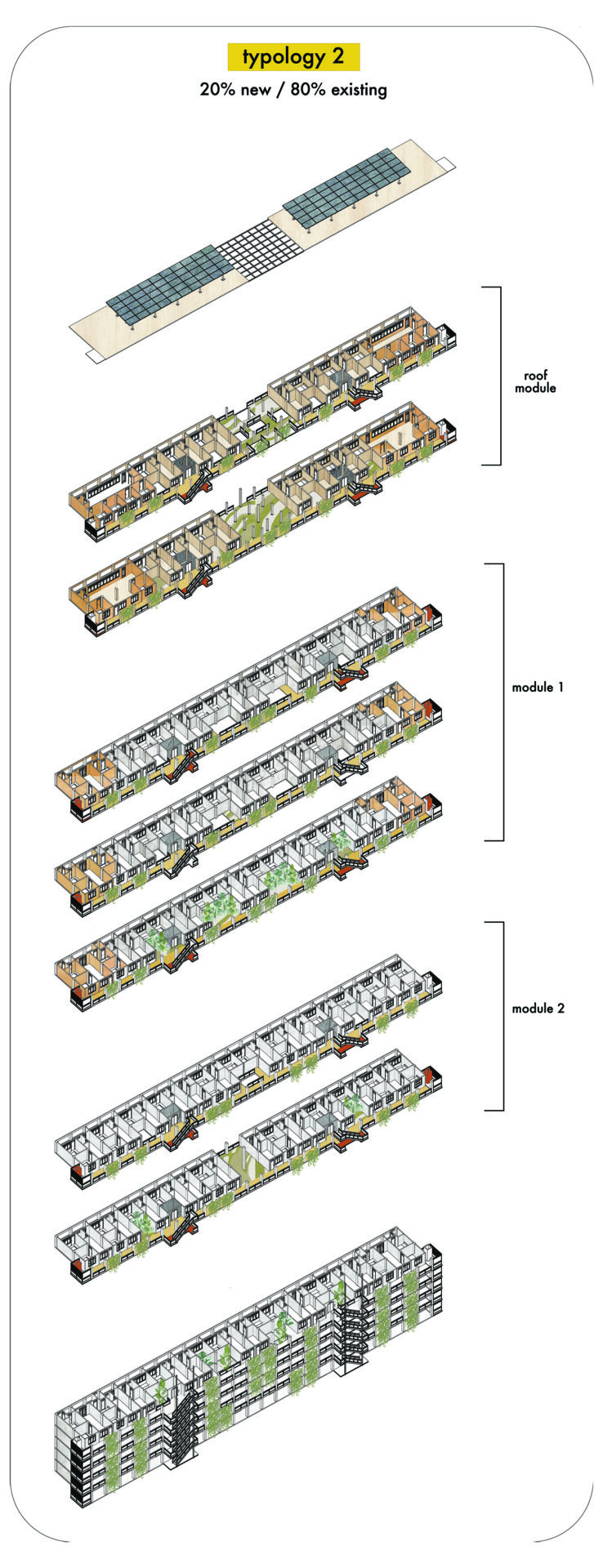
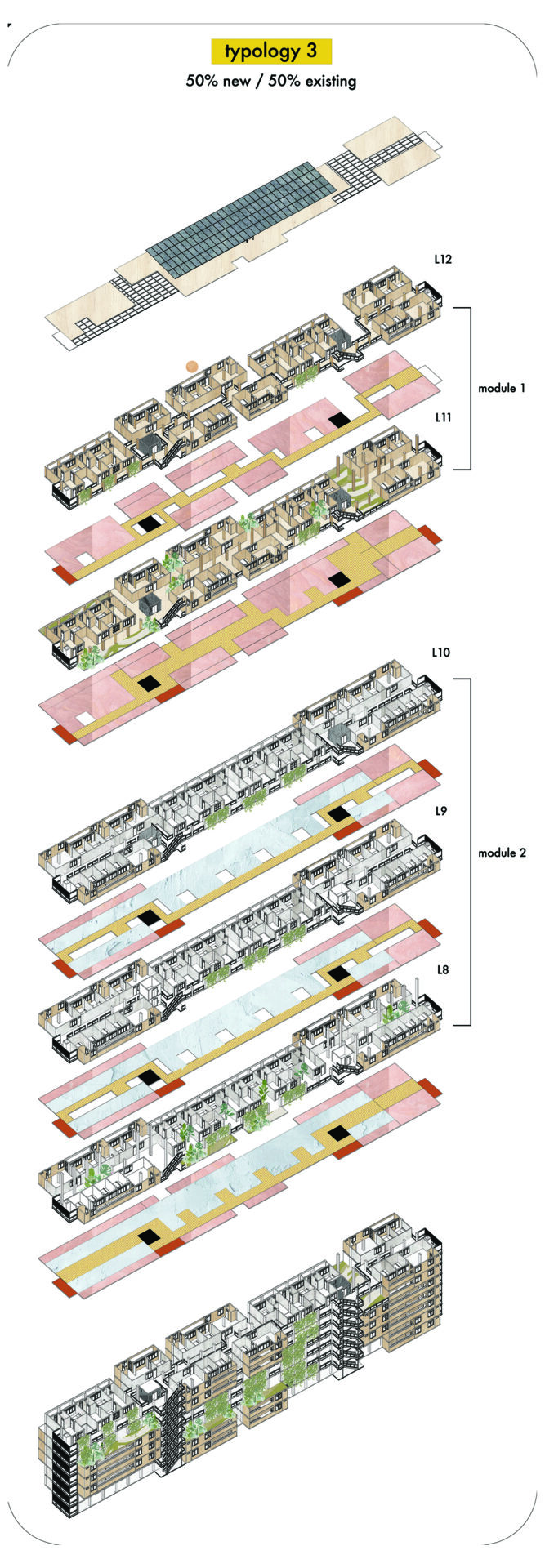
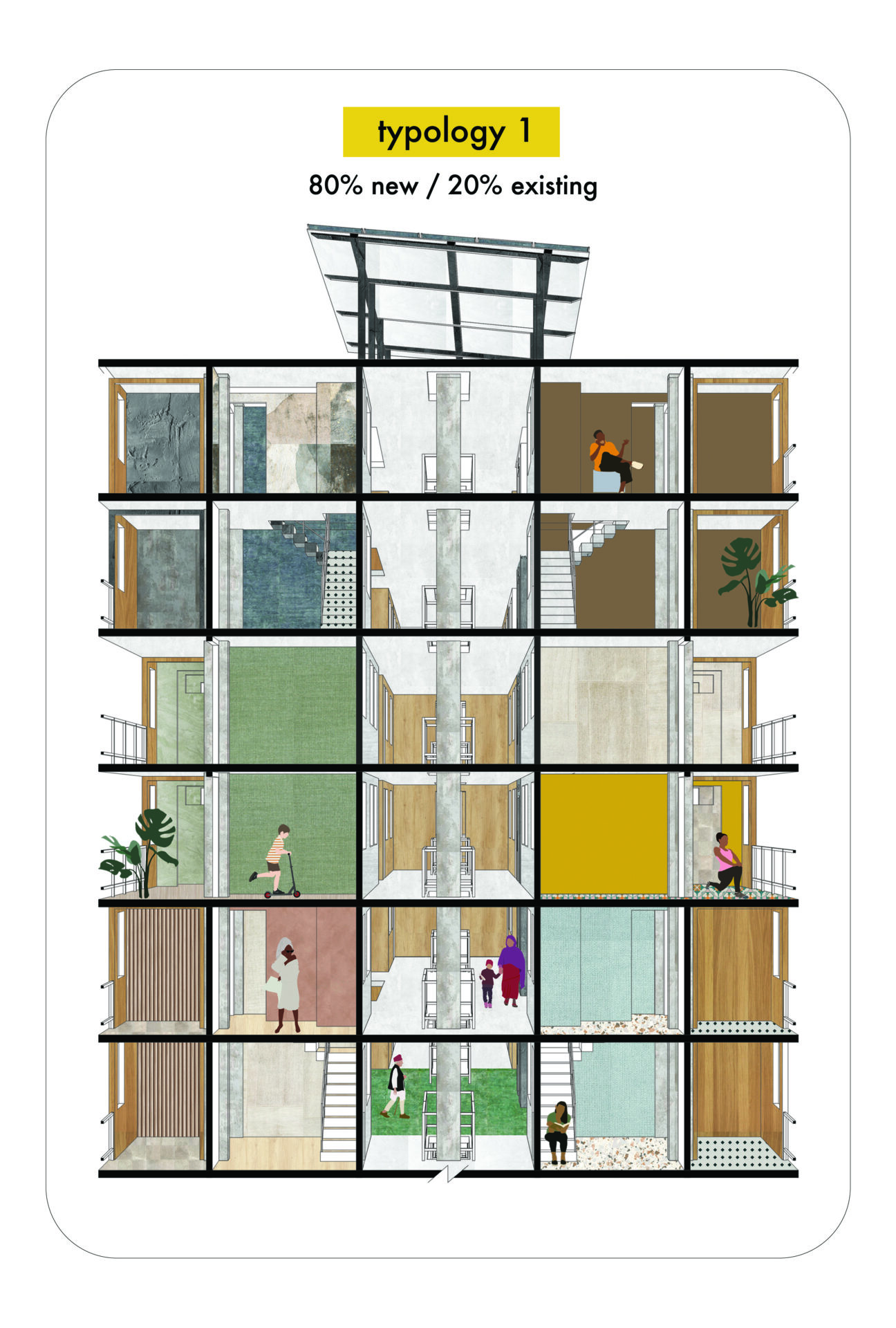
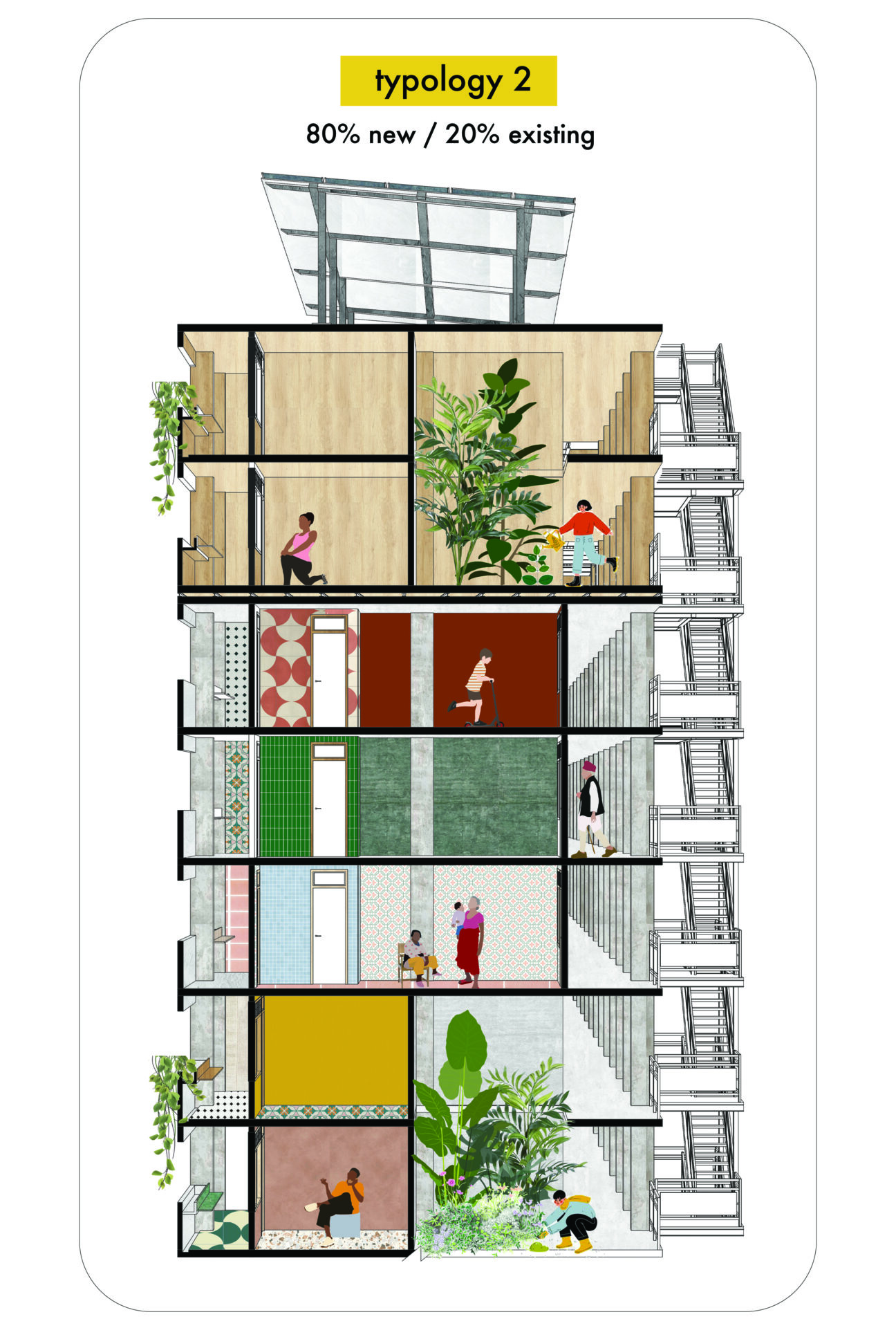
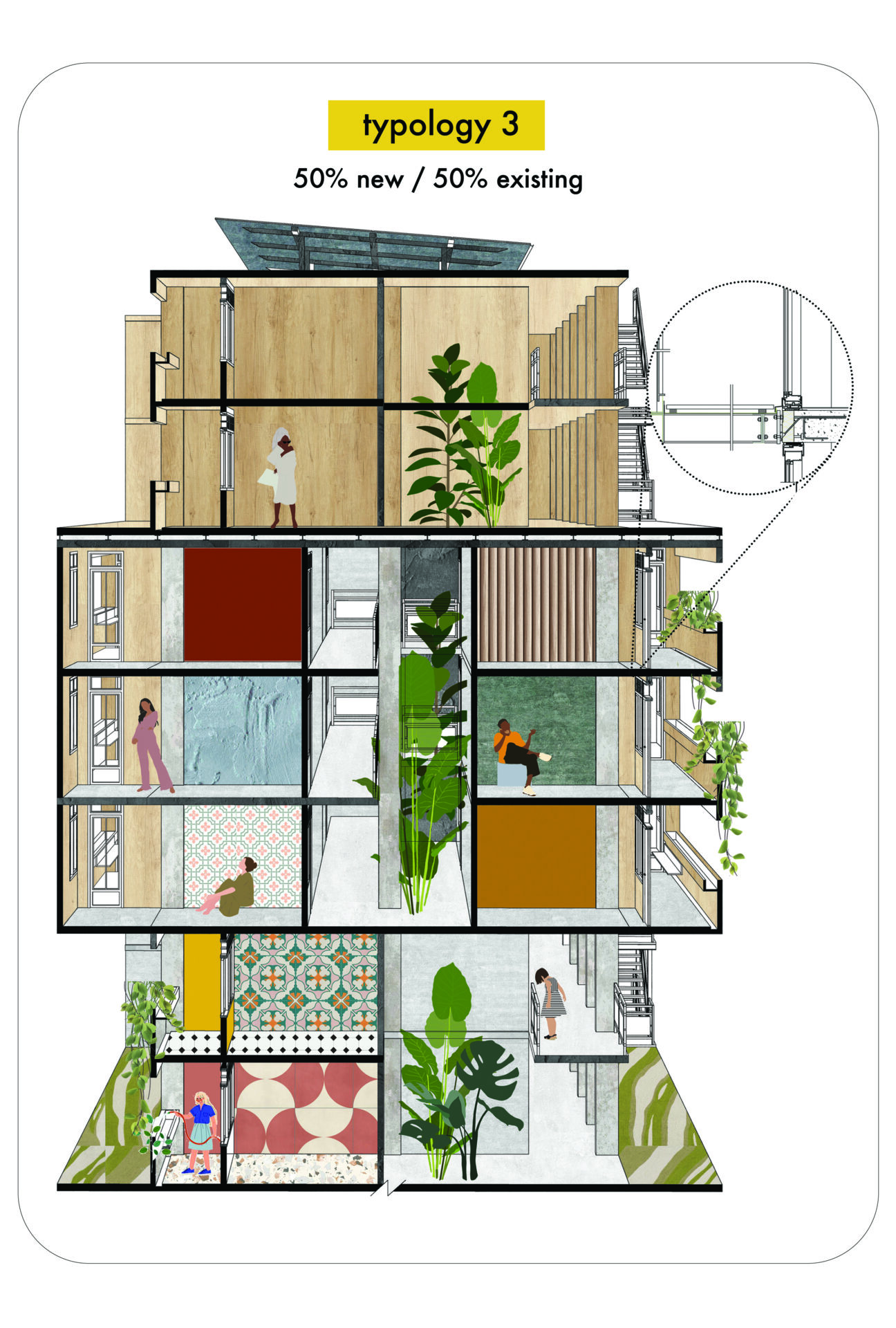
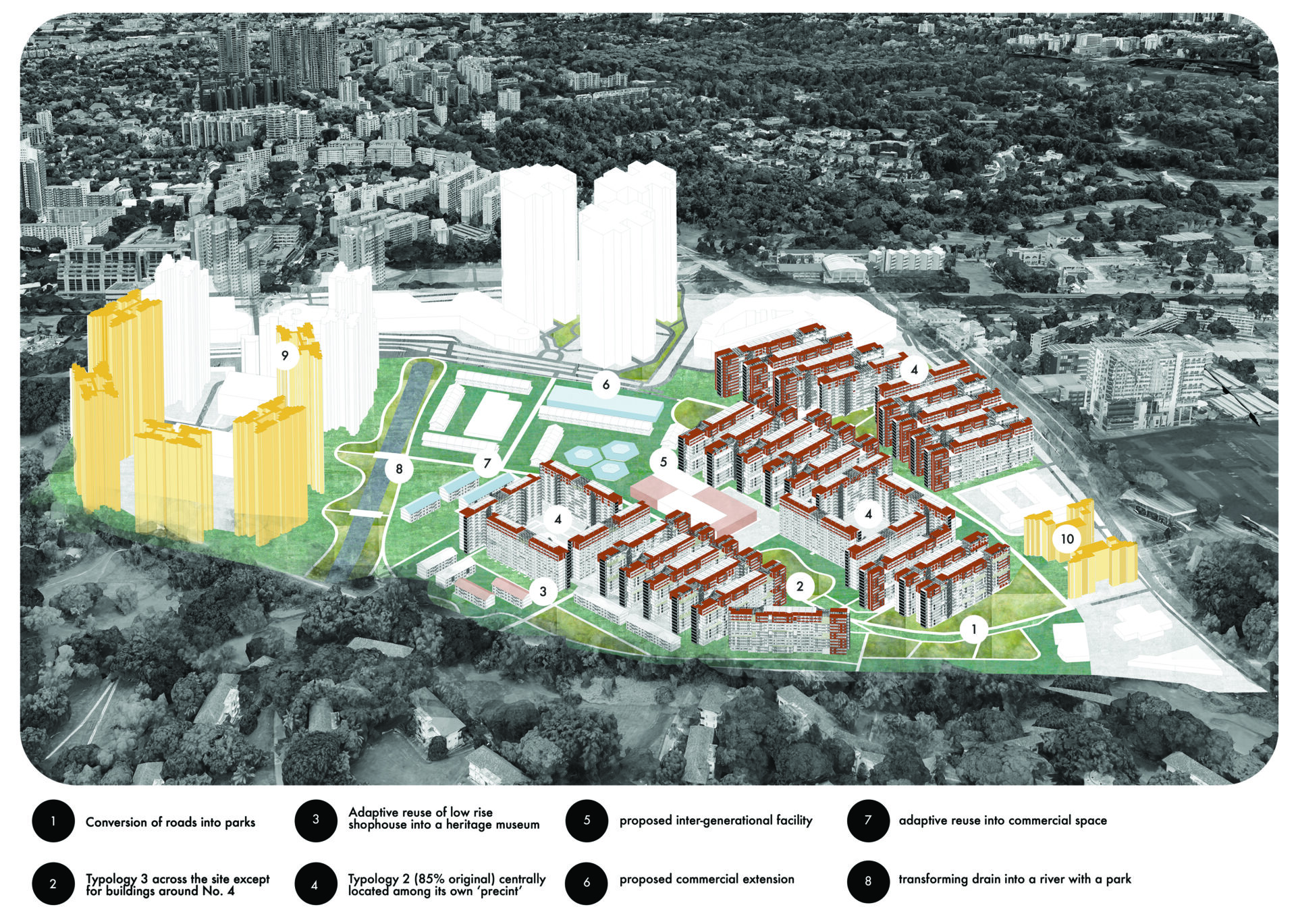
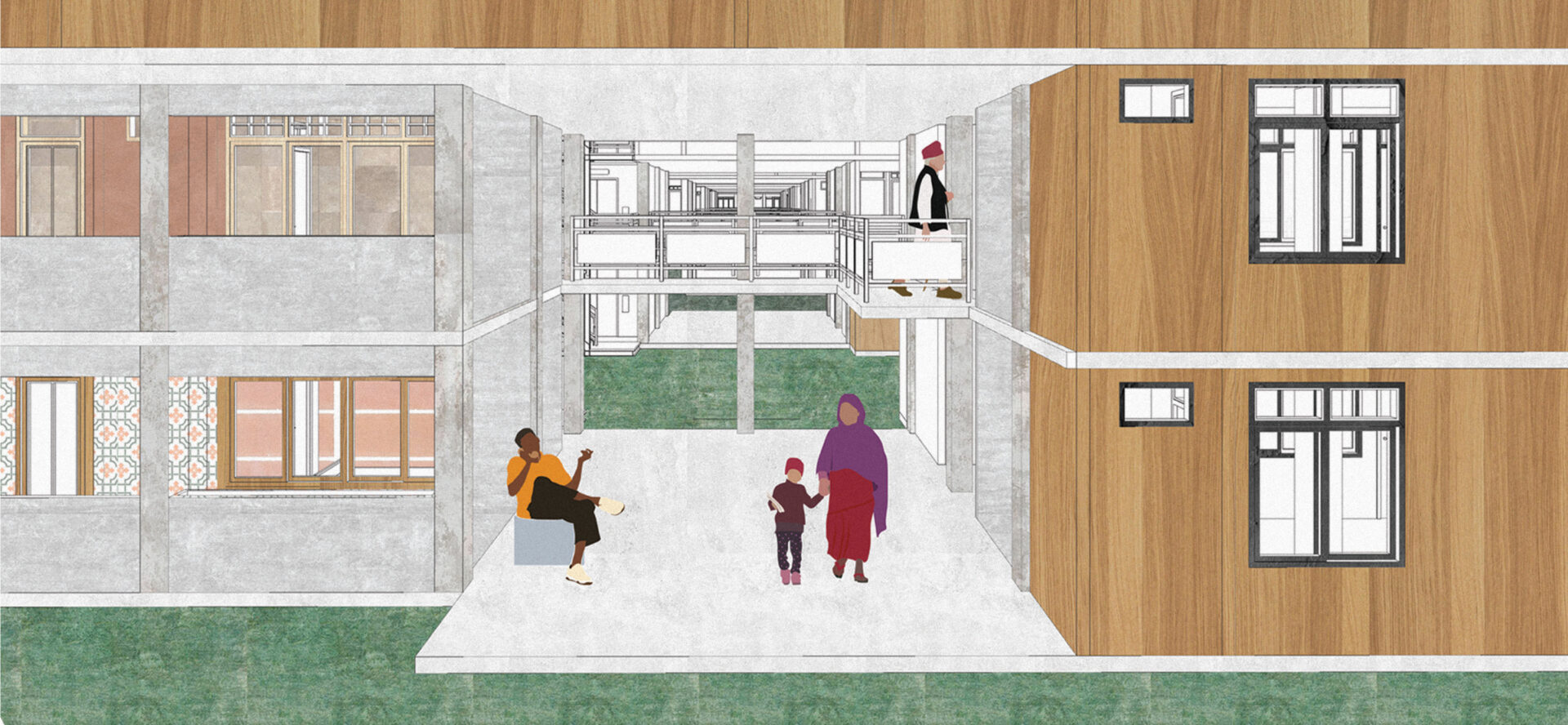
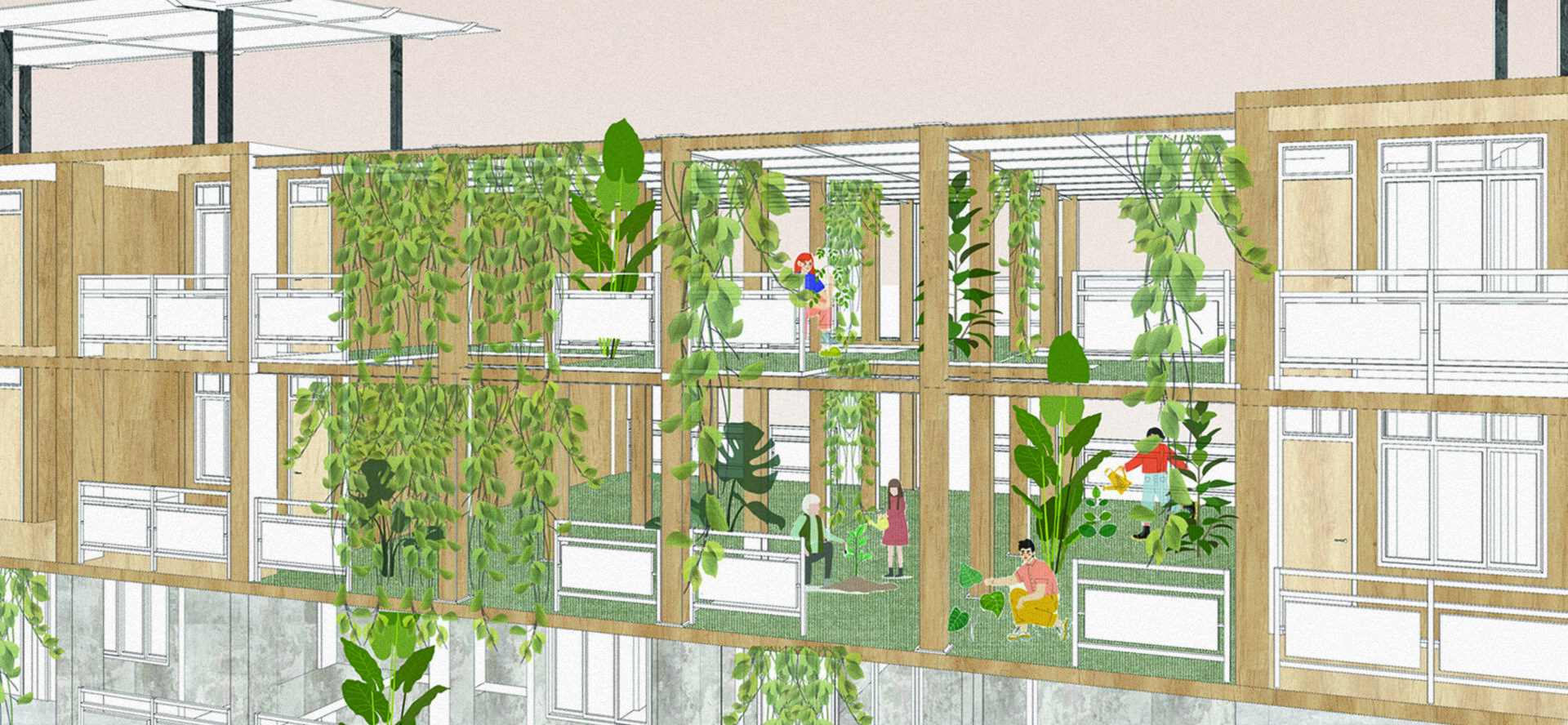
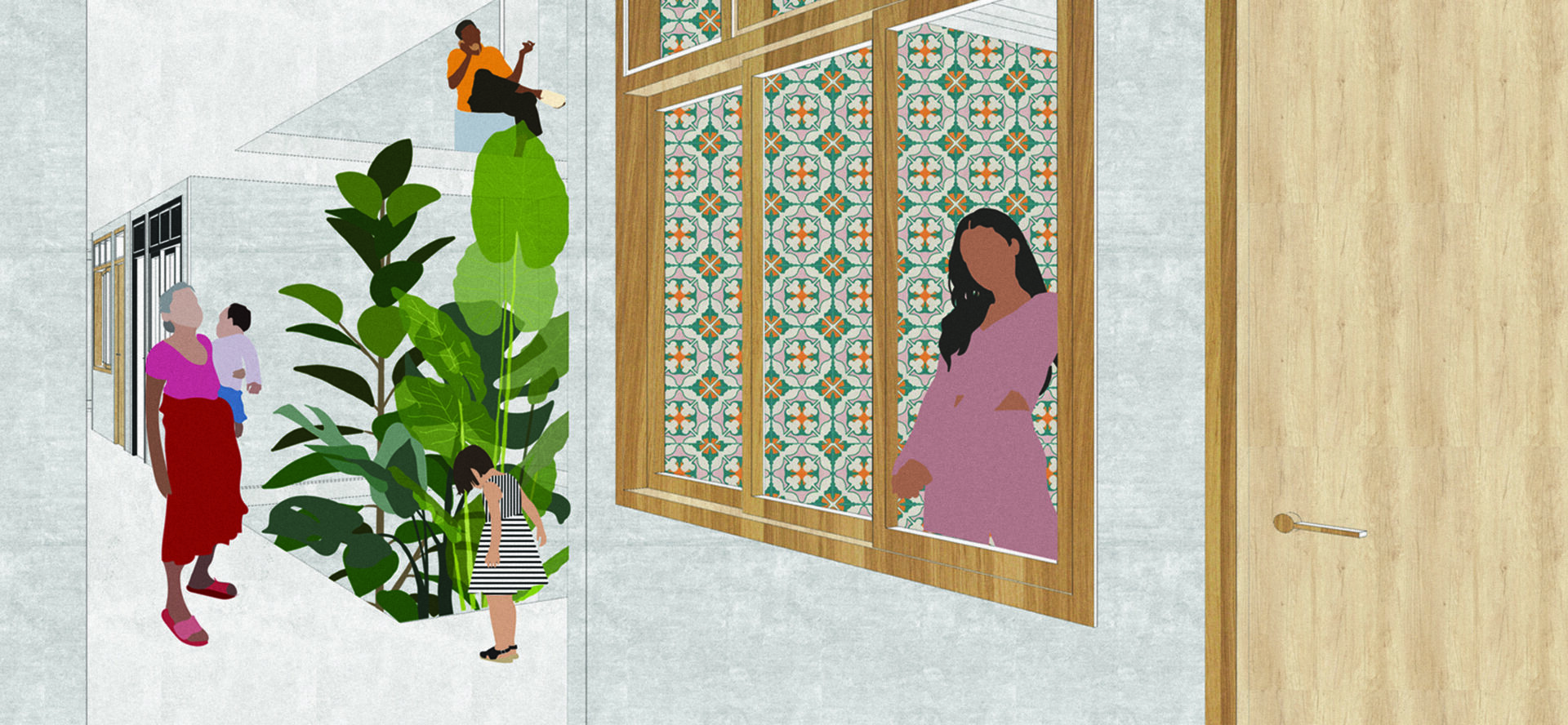
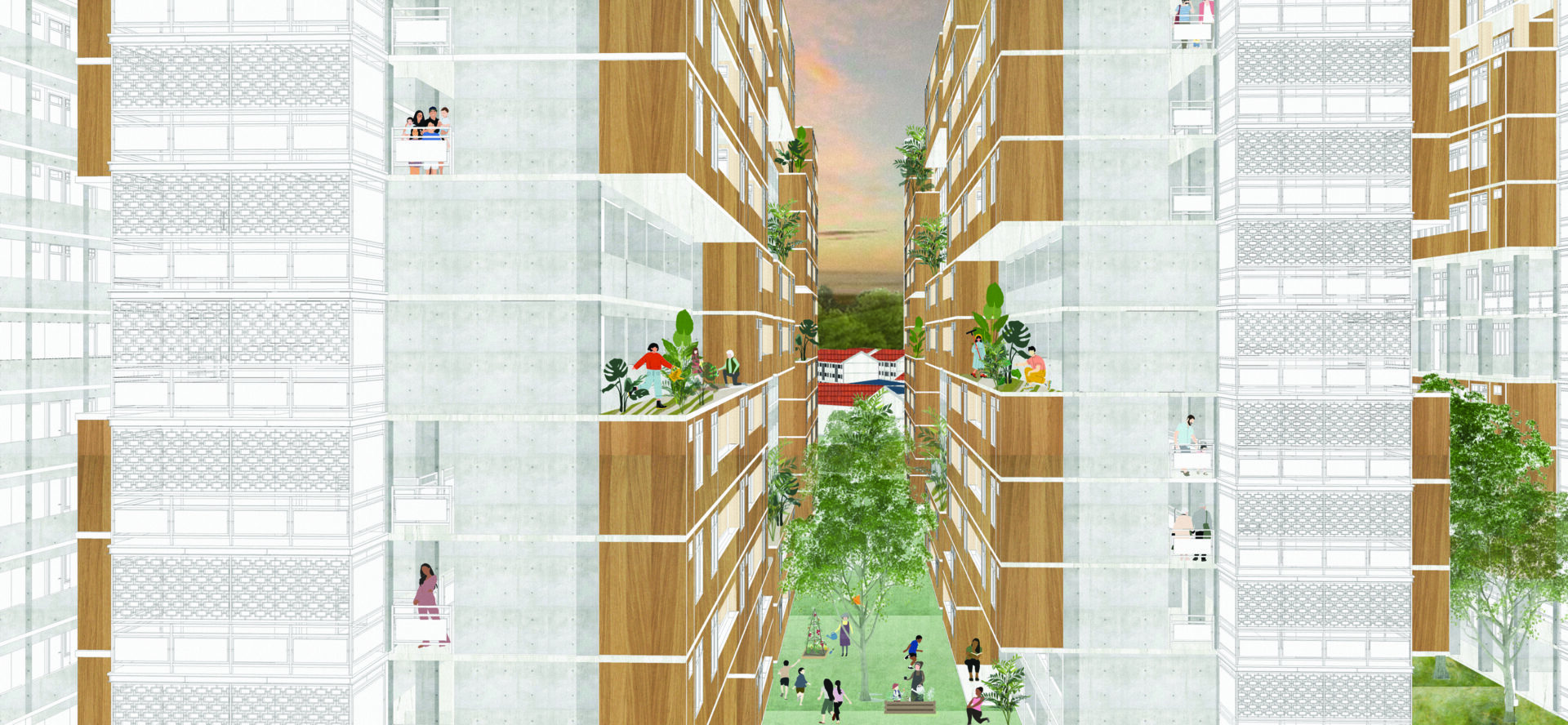
Supervisor's comments:
Conservation is a process of managing change and permanence directly related to ecological sustainability and social-cultural continuity, against the demolitions, breaking down neighbourhoods, and displacement of communities that often happened during the urban redevelopment program. Blocks of flats in Tanglin Halt have been slated to be torn down under the Housing Board’s Selective En-bloc Redevelopment (SERS) this year. Through her thesis, Nadia has put up a strong position in preserving the community integrity, place memory, environmental sustainability – and at the same time proposing viable strategies of achieving higher density, adaptively reusing the existing blocks, and addressing the social changes.
- Assoc. Prof. Johannes Widodo (Dr.)